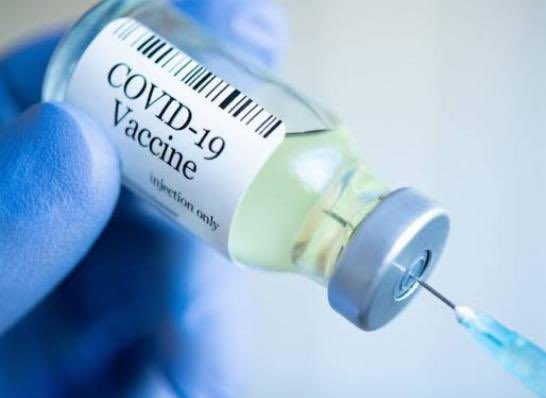[ad_1]
The Institut Pasteur de Dakar (IPD) and the Mastercard Foundation have announced a $45 million partnership to expand the workforce for vaccine manufacturing in Africa.
IPD, a Senegalese not-for-profit foundation, is working to advance equitable access to health in Africa.
Named MADIBA- Manufacturing in Africa for Disease Immunisation and Building Autonomy, the partnership, according to a statement signed by IPD, aims at developing and building a workforce toward achieving vaccine manufacturing autonomy in Africa.
This is coming when there are agitations for vaccine autonomy in Africa following the inequities experienced during the global roll-out of the COVID-19 vaccine.
As quoted in the statement, the Director of Africa Centres for Disease Control and Prevention (Africa CDC), Jean Kanseya, said less than one per cent of vaccines administered in Africa are manufactured locally, which “places a great financial burden” on the continent’s health systems.
According to WHO, Africa has fewer than ten vaccine manufacturing facilities in five countries: Egypt, Morocco, Senegal, South Africa and Tunisia.
![vaccine vial [PHOTO CREDIT: UNICEF]](https://media.premiumtimesng.com/wp-content/files/2022/04/UN0415226.jpg)
UNICEF]
Vaccine Autonomy in Africa
According to IPD, MADIBA, based in Senegal, aligns with the “Plan Sénégal Émergent” (Emerging Senegal Plan) to manufacture half of the country’s pharmaceutical products by 2035 as well as the African Union’s ambitious target to fulfil 60 per cent of the continent’s vaccine needs by 2040.
Between 9,000 and 14,000 full-time employees will be needed across vaccine manufacturing and research roles across Africa by 2040, Ms Kanseya said.
She added that the Africa CDC and AU have called for a New Public Health Order, which she noted will safeguard the health and economic security of the continent as it strives to meet the aspirations of Agenda 2063.
Through the MADIBA project, IPD explained that it would develop a specialised training curriculum for the African continent, which aims to train cohorts of talented young Africans to enrol 40 per cent of females.
READ ALSO: Food processing yielding half of Nigeria’s manufacturing jobs — FAO
The statement further reads: “It will also incorporate key ecosystem actors such as world-top experts, universities, and manufacturers to address the development of the requisite skills required for highly specialised functions, including vaccine production, quality assurance, supply chain, procurement, and clinical trials.
“Graduates of the MADIBA training programme will help drive the success of other manufacturing facilities, contributing to a multiplier effect and transformation of vaccine manufacturing capabilities on the continent.”
IPD noted that the partnership also aligns with the Foundation’s Young Africa Works strategy to enable 30 million young people, particularly young women, to access dignified and fulfilling work by 2030.

Nigeria’s efforts in vaccine production
The emergence of the COVID-19 pandemic highlights the importance of local vaccine production as Nigeria, among other African countries, struggled to access the vaccine during the roll-out compared to wealthier nations.
As of 1940, Nigeria was producing its vaccines at the Federal Vaccine Production Laboratory located in Yaba, Lagos State.
The institute, active for about six decades producing large quantities of vaccines against smallpox, rabies, and yellow fever, was closed in 1991 by the government.
Since the closure of the Yaba laboratory in 1991, Nigeria has continued to rely majorly on imported vaccines and donations while the Yaba facility rots away.
According to health experts at the African Vaccine Week 2022, the over-dependence on foreign countries for vaccines, poor research capacity, inadequate funding, and lack of accountability are why local vaccine production in Nigeria has remained slow.
To address these issues, the Nigerian Ministry of Health, through its Department of Food and Drug Services, developed a vaccine policy in 2021 to encourage local production of vaccines and to ensure self-sufficiency in vaccine availability.
But since the policy’s launch, Nigeria has yet to get a full-fledged vaccine-producing facility, but as announced in 2022, Biovaccines Nigeria Limited (BVNL) is expected to commence the production of vaccines in the second quarter of 2023.
BVNL, a joint venture between the Nigerian government and May & Baker Nigeria Plc, has reportedly partnered with Indonesia’s Biofarma, which is expected to provide the necessary technical support for Nigeria to grow local capability in vaccine production.
![Vaccines used to illustrate the story [Photo: celiac.org]](https://media.premiumtimesng.com/wp-content/files/2016/03/vaccines.jpg)
More on IPD, Mastercard partnership
IPD noted that the partnership is a multi-year project that will facilitate the establishment of “a centre of training excellence to equip talented young people, particularly young women, with specialised skills in vaccine research, manufacturing, production, and distribution.”
In his remarks, the CEO of IPD, Amadou Sall, said the partnership will enhance human capital development for biomanufacturing in Africa, describing the project as “a crucial pillar for vaccine equity and autonomy and a significant driver for high-skilled job creation among young and female Africans.”
Mr Sall added that the partnership aims to train a workforce for MADIBA and other African vaccine manufacturers, develop partnerships with African universities and promote science education among young students.
Also, the President and CEO of the Mastercard Foundation, Reeta Roy, said the partnership seeks to keep everyone safe by rolling out COVID-19 vaccinations while ensuring Africa’s long-term health security by building vaccine manufacturing expertise and workforce on the continent.
“In the process, our collaboration will also benefit the livelihoods of young people in Africa,” she said.
Support PREMIUM TIMES’ journalism of integrity and credibility
Good journalism costs a lot of money. Yet only good journalism can ensure the possibility of a good society, an accountable democracy, and a transparent government.
For continued free access to the best investigative journalism in the country we ask you to consider making a modest support to this noble endeavour.
By contributing to PREMIUM TIMES, you are helping to sustain a journalism of relevance and ensuring it remains free and available to all.
Donate
TEXT AD: Call Willie – +2348098788999
[ad_2]
Source link







